Tom Lembong Case and Inequality Before the Law
There are many irregularities in relation to the detention of Tom Lembong. Without sufficient evidence of corruption, this case can be considered as politicization, and not enforcement, of the law.
maaf email atau password anda salah

There are many irregularities in relation to the detention of Tom Lembong. Without sufficient evidence of corruption, this case can be considered as politicization, and not enforcement, of the law.

The position of BRIN remains uncertain under Prabowo Subianto’s administration. The restructuring of the research agency is hampered by political interests.

Tom Lembong’s lawyer on the irregularities of his case.
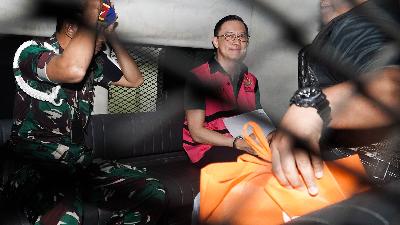
The Attorney General’s Office is still withholding the evidence in the sugar import case involving Tom Lembong. State losses remain unclear.

Prabowo Subianto orders four ministers to rescue the bankrupt textile company Sritex. A potential bailout from the state is on the table.

Former Trade Minister Thomas Lembong is arrested by the Attorney General’s Office over corruption allegations. When will other ministers be questioned?
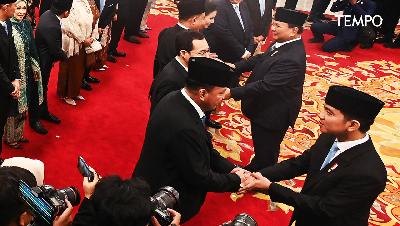
A number of problematic individuals are appointed to Prabowo Subianto’s cabinet. It will be difficult for the government to be effective in its first one or two years.

The phrase “human rights” was lost from Prabowo Subianto’s inauguration speech.

Prabowo Subianto formed a large cabinet to accommodate the interests of parties, businessmen, and his supporters. Mining entrepreneur Haji Isam is suspected of proposing several ministerial candidates.
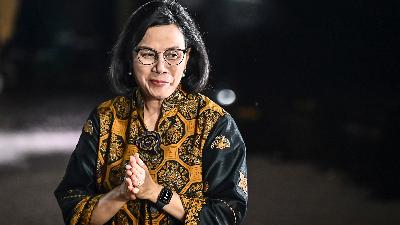
Sri Mulyani and several economic ministers from Jokowi join Prabowo’s cabinet, with encouragement from two former presidents.
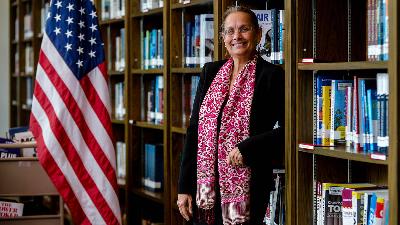
United States Ambassador Kamala Shirin Lakhdhir speaks about women, education, and Indonesia’s new administration.

Trade Minister Zulkifli Hasan on the issues ranging from sea sand export policy to Prabowo Subianto’s bureaucratic management style.

President-elect Prabowo’s cabinet is predicted to be filled by more than 40 ministries in an effort to accommodate the interest of the parties supporting him.

The 2025 State Budget’s Financial Note illustrates Prabowo Subianto’s financial policies. There is hope for economic improvements.

Prabowo Subianto has nothing to gain by supporting Jokowi’s reckless destruction of democracy. It will be a burden for his administration.

The 2025 State Budget accommodates several of Prabowo Subianto’s programs. Lobbying efforts are underway to ensure the smooth implementation of these priority programs.
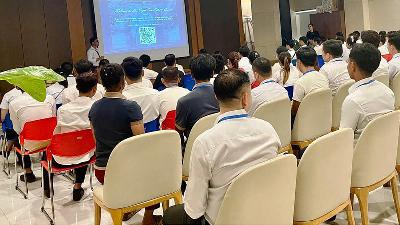
Victims of human trafficking for online gambling and scamming in Cambodia claimed of being forced to work 12-hour shifts and being beaten. Recruitment is still ongoing.
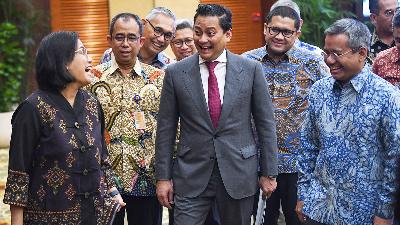
People close to Prabowo Subianto will be given strategic posts. Jokowi gives his blessing.

Prabowo Subianto’s team is investigating the possibility of revising the State Finance Law and removing the debt ratio and budget deficit cap for the free nutritious meal program.

The police must establish an independent team to investigate the murder of Vina in Cirebon. It is possible there was manipulation.

There is no possibility for Prabowo to go on a spending spree during his presidency. Debt repayment liabilities will shackle him.

PDI-P cadres and volunteers refuse to let the party join the Prabowo Subianto coalition. The party’s stance remains unclear.

PKB General Chair Muhaimin Iskandar explains the odds of his party joining Prabowo Subianto’s coalition.

Political parties that supported the Prabowo-Gibran presidential ticket plan to form a permanent coalition for the 2024 regional head elections. They are strengthening themselves in the provinces.

The parties supporting Ganjar and Anies are offered ministerial posts in the cabinet of Prabowo. There is rejection from Prabowo’s coalition.

Political parties are preparing names for potential ministers in Prabowo’s cabinet. They are eyeing strategic positions.

Prabowo plans to expand his cabinet to 40 ministries. Political parties are fighting over strategic ministries. President Jokowi is also intervening.

BI Rate hike fails to boost the rupiah. The markets await certainty on the new government’s fiscal policy direction.

Gerindra Party Executive Chairman Sufmi Dasco Ahmad gives his explanation about the preparation of Prabowo Subianto’s cabinet ministers.
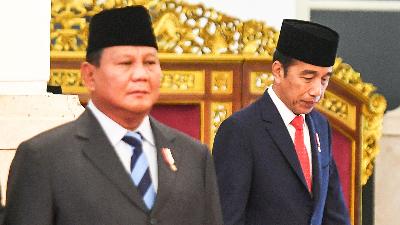
Prabowo Subianto already started to design the composition of his cabinet. There is a possibility that the number of ministers in Prabowo’s cabinet will increase.
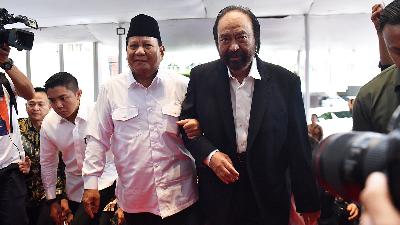
Prabowo Subianto is actively lobbying the PDI-P, NasDem, and PKB. The Opportunity to get into Prabowo’s cabinet is wide open.
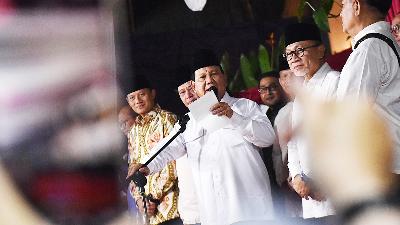
Prabowo’s cabinet is expected to be filled with many party cadres. Jokowi and other officials from the coalition of parties supporting Prabowo-Gibran already floated a number of names.

Prabowo shows some changes in his economic approach. The market is unconvinced yet.

Prabowo’s wish of expansive state budget deficit might lead into an economic disaster, just like in Egypt.

The key to the victory of Prabowo and Gibran in the presidential election is political support from those in power. This is a reoccurrence of the New Order elections.

Prabowo-Gibran is likely to win the presidential election in one round. They were boosted by the ‘Jokowi effect’ and Ganjar-Mahfud’s landslide defeat.

The Prabowo-Gibran National Campaign Team Chief Rosan Perkasa Roeslani responds to allegations of election frauds that purportedly benefitted the pair.

Prabowo Subianto did not give an interview. His team members said he was busy campaigning.
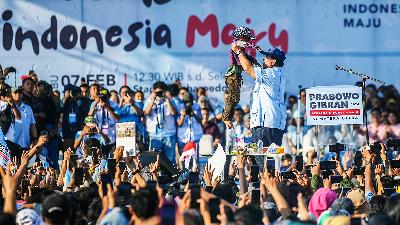
Acting regional heads are working for a Prabowo-Gibran presidential election victory. This report is a collaboration between Independen.id, AJI Indonesia, and USAID Media-Internews.
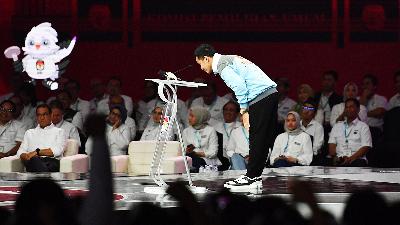
The police and a number of government ministries are working for a Prabowo-Gibran election victory. Some are using state funds for this purpose.

A number of people close to Jokowi are now frequently criticizing the government. There is a request to support the Prabowo-Gibran presidential bid.

Trading on the carbon exchange is strained by regulations. Business actors are complaining about the mandatory entry to the National Registry System.

Decarbonization is seeing an uptrend in various industrial sectors. Businesses are hoping for incentives and economic benefits.

New players are entering the carbon market of the forestry sector. They are competing for land from Sumatra to Papua.

PLN and power companies are hunting for revenue from carbon units. The race to develop low-emission energy sources is on.
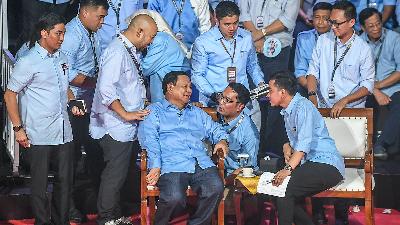
Prabowo and Gibran’s electability rates started stalling in November 2023. In several regions, support for Prabowo is eroded by the Anies-Muhaimin ticket.

The gemoy dance is quite popular among young people. The campaign team for Prabowo-Gibran brings together many influencers to gather support.
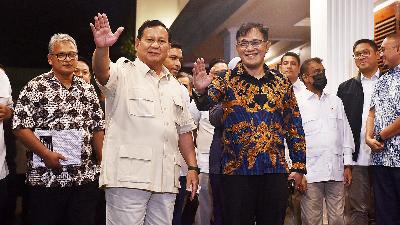
Budiman Sudjatmiko and other 1998 activists are gathering support for Prabowo Subianto-Gibran Rakabuming Raka. They are deemed pragmatic and accused of forgetting history.

Prabowo Subianto publicly made little of the ethical violation surrounding Gibran Rakabuming Raka’s appointment as his running mate in the 2024 presidential election.
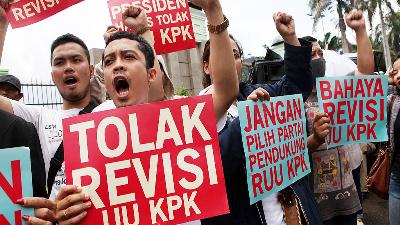
The Corruption Eradication Commission is no longer independent ever since it became part of the executive body. The fruit of the revised KPK Law.
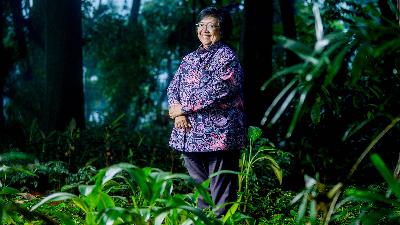
Environment and Forestry Minister Siti Nurbaya explains carbon reduction strategies and approaches to mitigate the climate crisis.
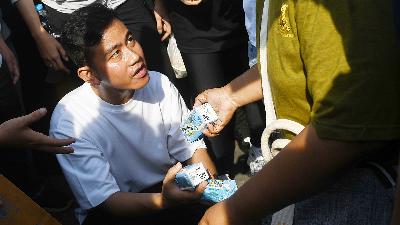
The KPU is slow in preparing the presidential debates. It is considered to favor the Prabowo-Gibran pair.

Damage occurrs to the wheels of Jabodebek LRT train cars, allegedly because the tracks are not built to specification. Instead of fixing the problem, the government changes the regulation.
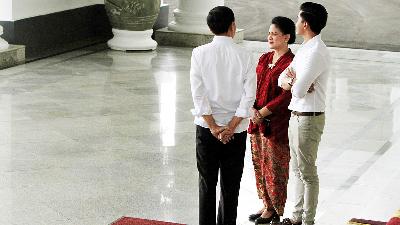
Iriana, the wife of Jokowi, has been advocating for Gibran Rakabuming Raka to become Prabowo’s vice-presidential running mate since the beginning of the year. She is actively garnering support among entrepreneurs.

Solo becomes one of the battlegrounds for the presidential campaigns of Prabowo-Gibran and Ganjar-Mahfud. They fight over campaign advertisement locations.

The political parties supporting Prabowo are continuing to do so despite the nomination of Gibran for vice-presidency is proving problematic. They are simply after power.
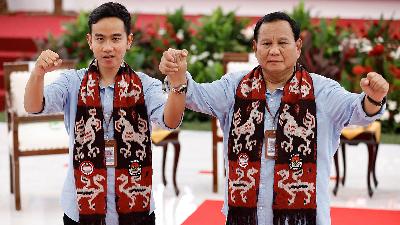
The Prabowo-Gibran presidential campaign has assessed the impact of the dismissal of Anwar Usman as Chief Justice of the Constitutional Court. They are downplaying the issue of a Jokowi political dynasty.
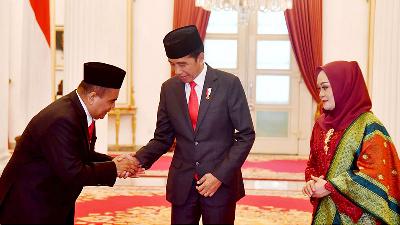
News of public officials’ campaigns for Prabowo-Gibran and the court verdict in the child kidney failure case.
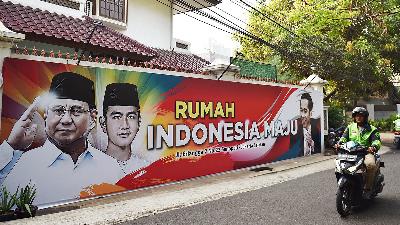
A number of volunteers are pushing for a Prabowo-Gibran presidential bid. They are hoping that a lawsuit at the Constitutional Court regarding age requirements for candidates will be decided in their favor.

Carbon trading is simply a way to mitigate climate change. The main aims are the energy transition and environmental protection.

The scenarios of Prabowo-Kofifah or Ganjar-Kofifah are intensifying. Prabowo Subianto and Ganjar Prabowo are courting Khofifah Indar Parawansa.

The carbon exchange is still lacking traders and buyers, hampered by the process of certification and registration of carbon units.

The Indonesian Stock Exchange established four carbon trading mechanisms. There were 27 transactions in three schemes in the initial sale.
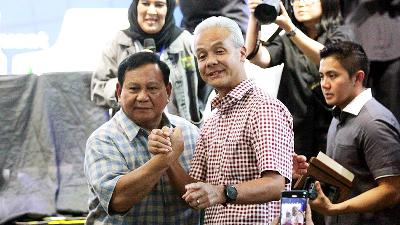
The idea for a Prabowo Subianto-Ganjar Pranowo presidential ticket resurfaces. Both camps are resolved to field their nominees as presidential candidates.
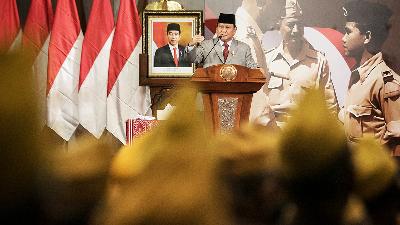
Prabowo Subianto is receiving support from retired military officers who used to be his opponents. They seem to have forgotten serious human rights violations in the past.

The plan from the OJK to introduce carbon units as securities could lead to problems. Carbon trading no longer means a reduction in emissions.

The OJK regulates carbon exchanges as a securities trading platform. How will the OJK prevent greenwashing in the carbon exchange?

A number of cases show that carbon exchanges are prone to greenwashing. Carbon trading is considered a manipulative method.

The Indonesia Stock Exchange and Indonesia Climate Exchange (ICX) are competing to manage carbon exchange. Carbon transactions amount to billions of dollars annually.

Voluntary carbon trading has stopped since 2021, due to upside down policies.
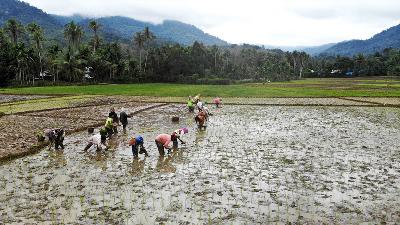
Individuals and companies are already implementing carbon trading in the voluntary market. But no price standard has been set.
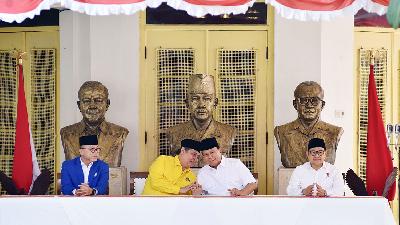
President Jokowi is suspected of asking Golkar and PAN to support Prabowo Subianto’s coalition. Gibran Rakabuming Raka’s chance of becoming a vice-presidential candidate is getting stronger.
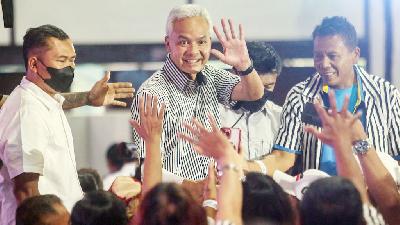
Ganjar Pranowo and Prabowo Subianto continue to make efforts to increase their electability. They are flooding social media with positive content.
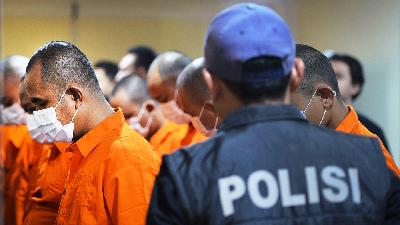
The police exposes Indonesian kidney trafficking network in Cambodia. The victims are enticed through social media.

The PSI and PBB will support Prabowo Subianto in the 2024 presidential elections. President Jokowi plays a role.

The carbon market is to open in September. The regulations and infrastructure are not yet in place.

Jokowi is expressing stronger support for Prabowo Subianto. What happened in the Philippines could potentially happen here.

Nadea Nabilla Putri develops a solar power boat engine. It is the initial step to contribute to the reduction of carbon emission at sea.

This collaboration combines expertise from the academic and industrial worlds through a biotechnology approach.
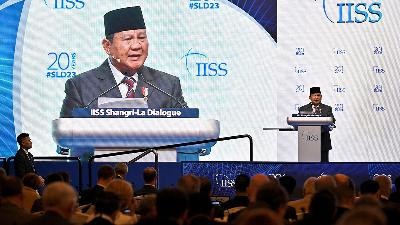
A summary of our news, from Prabowo Subianto’s proposal for the Russia-Ukraine war to Luhut Pandjaitan’s special privileges.

The ASEAN Summit at Labuan Bajo did not produce any important agreements. It was just an expensive neighborly chat.
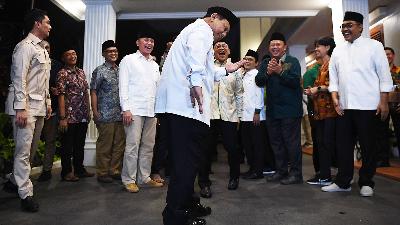
Prabowo Subianto wants to run for president again. The option of becoming Ganjar Pranowo’s running mate is still being considered.

Police seized a Lamborghini Aventador with a fake license plate from a Russian tourist. The car disappeared twice.
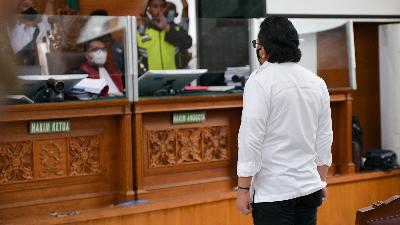
Judges handling the Ferdy Sambo case received various intimidations. A police brigadier general and a Supreme Court justice allegedly intervened behind the scenes.

The Ferdy Sambo trial is marred by a video of a conversation between a judge and a woman. Beware of the judicial mafia.

In the The Drama of Sambo, it turns out that one important element in democracy (often forgotten) can actually be upheld: the armed forces, which are given the right to monopoly of violence, bow before those who hold authority without arms.

The collaboration is a platform for women's economic development. #InfoTempo
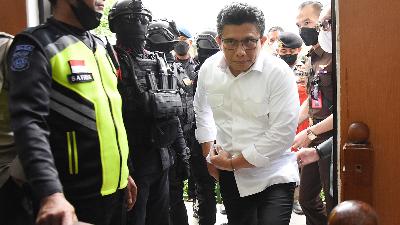
Ferdy Sambo, who is currently facing trial in the case of the killing of his adjutant, is suspected to be connected to an illegal mining bribery case involving Ismail Bolong.
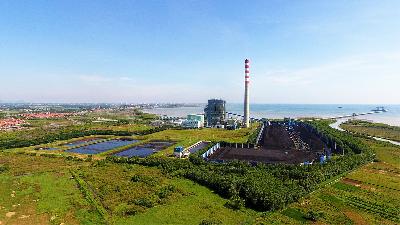
PLN is busy preparing for the early retirement of Cirebon Unit 1 coal-fired steam power plant, which belongs to an independent power producer. The state power company is seeking cheap funds.
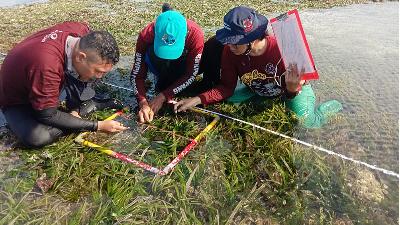
Indonesia’s marine resources have potentially higher blue carbon sequestration than tropical rainforests in green carbon removal. However, seagrass and mangrove ecosystems are not yet optimally tapped on.
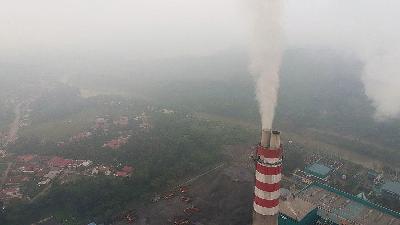
The environment and forestry ministry issues a regulation for implementing the carbon economic value. It is prone to be misused for greenwashing by emission producers.
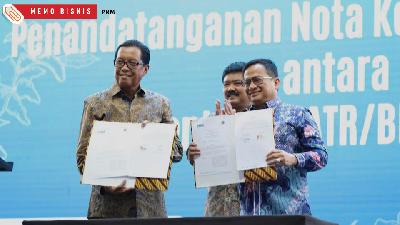
The collaboration aims to optimize the synergies in the implementation of tasks in the land sector and to empower MSME business development. #Infotempo
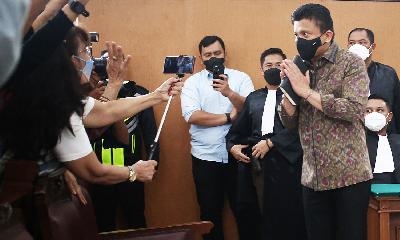
Tempo made a special interview with Ferdy Sambo regarding the murder of Brig. Yosua, Putri Candrawathi’s involvement, and his black notebook.
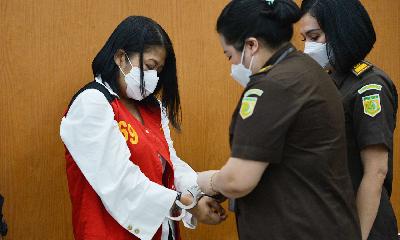
Ferdy Sambo and Putri Chandrawati attempt to escape premeditated murder charge. They employ former Corruption Eradication Commission official as legal counsel.
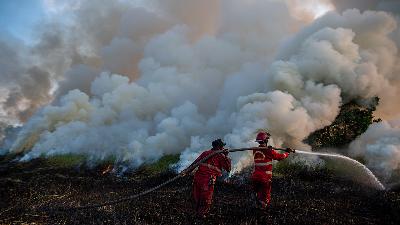
Indonesia and Norway resume cooperation in carbon emissions reduction by pushing down deforestation. Both support forest and land use (FOLU) net sink.

The police name Ferdy Sambo a suspect for premeditated murder. There are many strange aspects to the case.
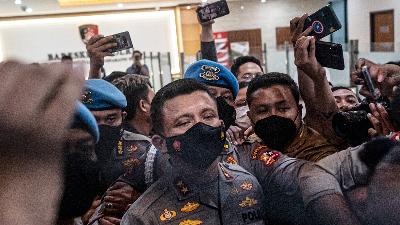
New facts indicate that Ferdy Sambo ordered the murder of Brig. Yosua. He is allegedly involved in the execution.

The unbecoming record of Prabowo Subianto’s participation in the prior two presidential elections makes him unfit to be a candidate leader of the nation. He should select another, more fitting candidate.

The National Police Headquarters detains Insp. Gen. Ferdy Sambo upon suspicion of a code of ethics violation. Bharada Richard Eliezer Pudihang Lumiu changes his statement regarding the death of Brig. Yosua.
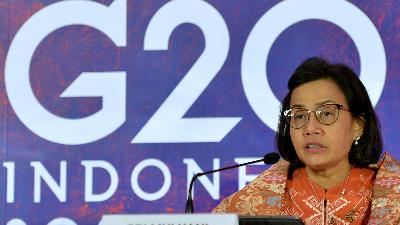
The implementation of carbon tax collection for steam power plants is delayed again. It waits for the global economic turmoil to pass.
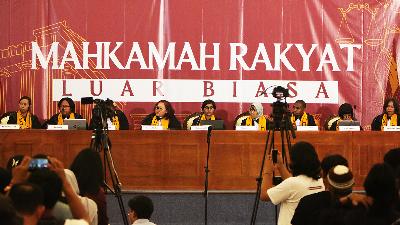
Summary of events of the week, from the People’s Tribunal trying Jokowi to the nine years sentence for former Pertamina CEO Karen Agustiawan.

The DPR and the government will shortly pass the omnibus Health Bill. They want to repeat the process used for the passing of the Job Creation Law.
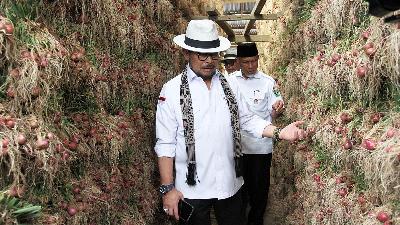
Through people close to him, Agriculture Minister Syahrul Yasin Limpo allegedly received tributes to fund his personal needs.

Bulog is suspected of handing over imported buffalo meat distribution to Suri Nusantara Jaya. The agriculture ministry took action to block the monopoly.

The omnibus health bill allegedly was entrusted to the DPR by the government. It would give health ministry great authority.
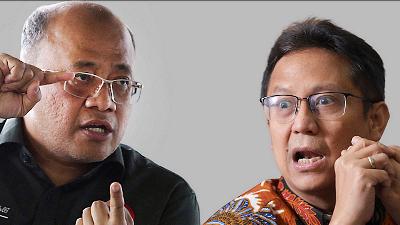
Rationalization of the healthcare omnibus bill by Health Minister Budi Gunadi and Indonesian Medical Association (IDI) Chair Adib Khumaidi
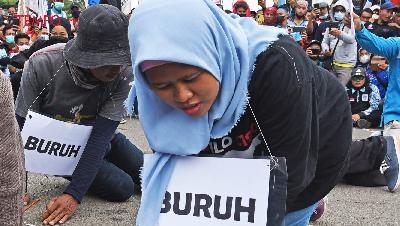
The government issued a job creation omnibus regulation in lieu of law (perpu) ignoring a Constitutional Court ruling. This is proof of the increasing signs of autocratic legalism.
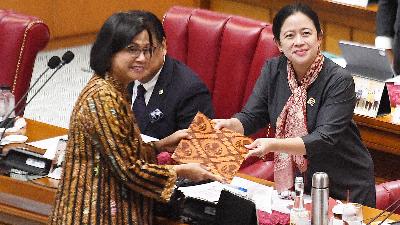
The PPSK Law was passed with relatively fast deliberations. This financial omnibus law unifies 17 laws, changing the gameplay of many financial services institutions and businesses.
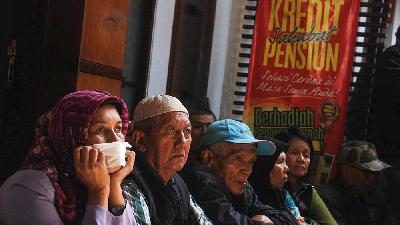
Indonesia is on the list of countries with risky pension systems. There is a sufficient gap between the contributions paid and pension income received by retired civil servants. The government will soon issue regulations on reforming pension schemes.

How do we assess oil and gas projects that contribute to the realization of “Resilient Indonesia, Growing Indonesia”?
How do they contribute to the rise of Indonesia's economic growth? What about their contributions to the transfer of knowledge for Indonesia? Or, their contribution to the development of the communities around their area of operations? Keep reading, we will get the answers to these three questions.

The National Zakat Agency (Baznas) encourages digital transformation as a strategy to strengthen the performance of alms management. However, Baznas CEO Mohamad Arifin Purwakananta views that the digitalization that has been seriously developed since 2016 has not really been evenly distributed.

Deliberations on the Omnibus Bill is continuing in the midst of a recess period and at the height of the Covid-19 pandemic. Golkar Party is giving its full support.

The central and regional governments have begun distributing social aid for those impacted by the Covid-19 pandemic. But the disordered database of recipients has resulted in improper aid distribution. Losses may be suffered by the state.
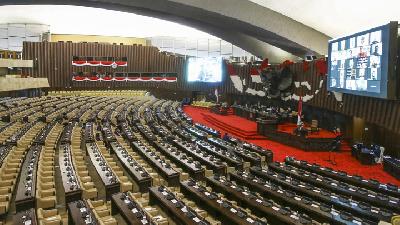
The omnibus bill on job creation will be discussed in the Legislation Body. It could share the same fate as in the revision to the KPK Law.

Preventing public participation in the drawing up of the omnibus law is anti-democratic. There is no reason to continue with this unrealistic project.
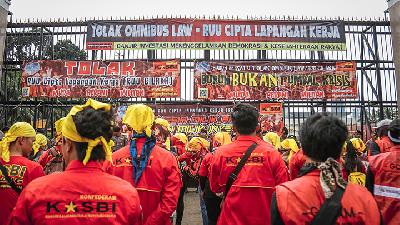
Numerous dissemination efforts seem unable to prevent demonstrations planned by labor unions to protest the omnibus bill. New problems appear to arise outside of the official draft content.
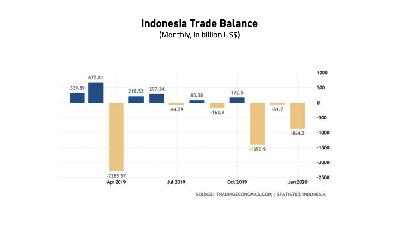
Yopie Hidayat (Contributor)
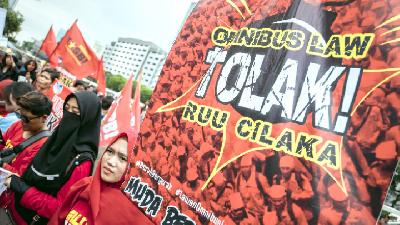
The government plans to turn in a draft of the Omnibus Law to the House of Representatives (DPR) this month.

The deliberations of omnibus laws that are taking place behind closed doors are causing suspicion. The government and the DPR must involve the public.
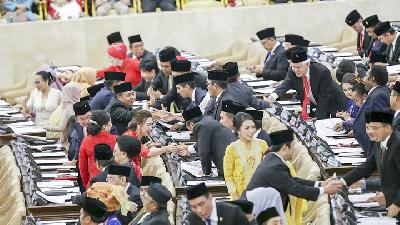
THE House of Representatives (DPR) has finished designating leaders of its agencies for the period of 2019-2024. The decision on the leadership distribution was made at a plenary meeting of the DPR on Tuesday, October 22.
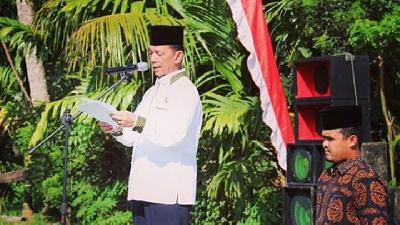
The development of the Batang Toru hydro power plant in South Tapanuli, North Sumatra, is partly due to the Pasaribu family. Permit processing went smoothly thanks to the Pasaribu brothers.

Lebanon acknowledges Indonesia’s contribution to maintaining world peace, particularly by placing its Garuda Contingent in the United Nations Interim Force in Lebanon (UNIFIL).

The Afghanistan High Peace Council expects Indonesia’s contribution to establishing peace in their country.

THE International Peoples' Tribunal, held in Nieuwe Kerk, the Netherlands, two weeks ago to address human rights violations committed in Indonesia during the violent events of 1965-1966 might have been nonbinding. It did, however, help bring some of the atrocities committed 50 years ago out of the shadows and into the light.
Several witnesses told stories of being tortured for supposed links to the Indonesian Communist Party (PKI). Some said the abuses were even ordered by members of the armed forces.

The national film industry lacks players in the distribution sector. Producers must often double as marketers.

Supreme Court Secretary Nurhadi claims he often resorts to using personal funds to cover work-related expenses. The source of his wealth and the motives for his contributions are under question.

There is strong suspicion that fertilizer subsidies valued at trillions of rupiah have long been misused. The Regional Information and Analysis Center found violations in seven out of 10 towns studied last year. Consequently, poor farmers may not have benefitted by the prices of fertilizers as determined by the governmentvictims of a fertilizer distribution system lacking transparency and difficult to access.The head of the Model Farmers and Fishermen's Association Winarno Tohir and Gunaryo, director-general of Domestic Trade at the Trade Ministry, exposed the chaotic distribution of rice fertilizers to Tempo reporters Akbar Tri Kurniawan, Eka Utami Aprilia and Y. Tomy Aryanto.

A number of ministries have announced they will follow the example of the Ministry of Foreign Affairs and undergo restructuring. Is this an effort to distribute the locus of decision-making?

The presence of Hashim Djojohadikusumo at COP29 in Azerbaijan was considered as bearing a conflict of interests. He was promoting the business of Arsari Group.
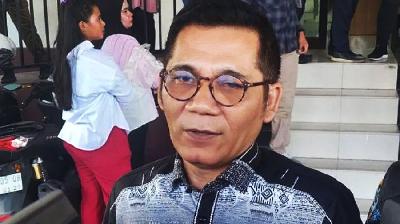
Former North Maluku Governor Abdul Gani Kasuba acknowledged meeting with Bobby Nasution but claimed he gained no advantage from it.

Over a dozen Lambung Mangkurat University lecturers are suspected of manipulating the requirements to apply for a professorship. They could be stripped of their titles.
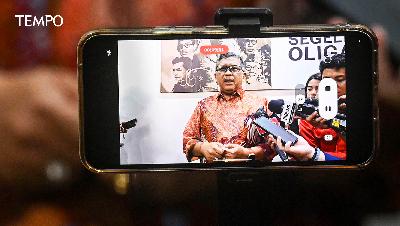
The KPK is once again investigating Hasto Kristiyanto regarding the Harun Masiku bribery case. This is a consequence of the dispute between the PDI-P and Jokowi.
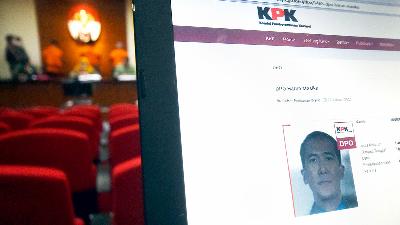
The KPK actually knows Harun Masiku’s location. He was once in Moro rebel territory in the Philippines.

The KPK questioned Hasto Kristiyanto again in connection with the Harun Masiku bribery case. Is it true that this is the result of the Presidential Palace interfering?

After being suspended due to to Covid-19, preparation for resuming soccer competition is being shadowed by breakup between the Chairman of Indonesian Soccer Association and his deputy. The national’s team preparation to compete in the U-20 World Cup next year is also affected.
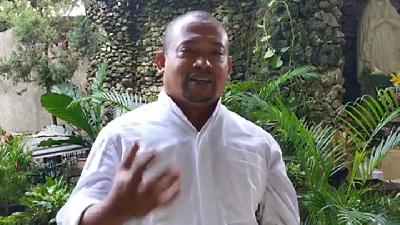
In early February, not long after taking the role of head priest at St. Herkulanus Parish in Depok, West Java, Yosep Sirilus Natet was faced with a case of sexual violence against altar boys. At first, there were two victims.

MEDAN Mayor Tengku Dzulmi Eldin’s alleged bribery case has roped in a number of parties, from bureaucrats to businessmen.

As his end approaches, in face of defeat, Amangkurat’s past rises up and meets him. The 90 minute drama in 14 acts is enacted on a dark stage. There, Amangkurat is Everyman.

A dead whale washed ashore at the Dusun Hulung Beach in Western Seram, Maluku, two weeks ago. Researchers from the Indonesian Institute of Sciences (LIPI) landed in the area and are currently investigating the 22-meter long whale carcass.

Bengkulu Province has eight local languages on the brink of extinction. The Indigenous Deliberation Forum (BMA) and the Bengkulu Language Office are trying to preserve them by documenting words and composing dictionaries.

Saturday classes at the Padang Ulak Tanding State Junior High School 5, Rejang Lebong, Bengkulu began much like any other. The students came to school at 7:15am and left at 12pm.
The only difference was their cooking of pempek (fish dumplings). Maria, a teacher at the school, asked a student initialed YY to buy small shrimps at a stall near the school for the affair. "Instead she bought ebi, or dried shrimp," Maria said on Wednesday last week. That was the last time she saw her.

The detention of Samadikun Hartono should spur the authorities in Indonesia to finally uncover all the facts of the Indonesian Bank Restructuring Agency (IBRA) megascandal. Although Indonesia has had five presidential changes, the investigation into the IBRA case has resembled a traditional poco-poco dance: backwards and forwards on the spot.
Samadikun was detained by Chinese immigration officials in Shanghai on April 15. Officers were suspicious because the former chairman of the board of Bank Modern had travelled back and forth to China on a Vietnamese passport under different names. After 13 years on the run, Samadikun was brought back to Jakarta last Thursday to serve a four-year jail sentence.

Amangkurat is loneliness: the friendless king on an island.
In early January 1648, Amangkurat, the ruler of Mataram, moved his palace from Karta to Plered, a location in the area of Bantul where the Winogo River had been dammed. Construction had already begun of man-made lakes around the palace.

The Masela refinery debate between Coordinating Minister for Maritime and Natural Resources Rizal Ramli and Energy and Mineral Resources Minister Sudirman Said go on and on. After their differences of opinion over Freeport, this time the two cabinet ministers trade arguments over the construction of a liquid natural gas rig and refinery at the Abadi gas field in Masela, Maluku. Sudirman supports construction of an offshore refinery, while Ramli leans towards building it onshore.
The energy ministry had already approved a plan for a floating refinery provided by the Regulatory Agency for Downstream Oil and Gas (BPH Migas) in 2010. The Plan of Development (POD) had to be revised after the discovery of new liquid natural gas (LNG) reserves three years later. It was the approval of this revised POD that started a debate. Several ministers took sides in support of either offshore or onshore plans.

Replaying a role in a film once performed by another actor is not easy. That is what Tio Pakusadewo, 52, faced when he was offered to redo the role of a migrant Batak in the filmBulan di Atas Kuburan ('Moon over The Graveyard') written by Asrul Sani in 1973. In that year, Aedy Moward performed that role. Aedy's acting was so powerful that he won the 1973 Citra (Indonesia's film festival award) for Best Supporting Actor.
But therein lay the challenge for Tio. "I watched the movie by Asrul Sani, and discussed it with several people involved in that production. Then I tried to find something new and unique," Tio told Tempo.

The year 2015 will go down as the year of consolidation, when President Joko Widodo must find his way through the intricate political web he inherited from the previous administration before he can actually begin the job of governing the nation. This is why to many observers, Indonesia seems to fit the description of 'a nation in waiting'. Just how long the waiting is expected to last is anyone's guess but it seems that one year is not enough. The uncertainty, Kuntoro Mangkusubrotoscholar, a former bureaucrat and activistsaid, is likely to carry into the next year when the government feels confident enough to settle down and do the serious job of governing.
Kuntoro has often been called 'a man for all seasons' for his rich and varied background as an academic, a cabinet minister, a successful administrator of billions of dollars worth of post-disaster rehabilitation and reconstruction program and, lately, as a government watchdog and campaigner for transparency and open government. It's no wonder he is much sought after for his views on a variety of issues and topics. We at Tempo English seek him out at every end of the year for his assessment of the state of the nation and his vision for the future. Last week, he shared his worldview with Yuli Ismartono and Amanda Siddharta. Excerpts:

Dr Kuntoro Mangkusubroto, former energy and mines minister and former CEO of state-owned mining companies Bukit Asam, Timah and electricity company PLN shares his views on current issues besetting the mining industry with Melati Kaye and Syari Fani.

The successful penalty kick is a victory not only for the Maluku Soccer Team in the film Cahaya dari Timur:Beta Maluku but also for the film's team. This year,Cahaya dari Timur not only won an award in the Indonesian Film Festival. It is also Tempo's favorite movie.
At a glance, the film resembles Indonesian soccer films produced a few years ago, such as Garuda di Dadaku ("Garuda in My Heart") and Tendangan dari Langit("A Kick from the Sky"). But there is far more to it than that. Cahaya dari Timur follows a small team from a remote region that comes to the capital city for a game against a far more experienced team. It is an underdog story with touches of patriotism and nationalism.

THE December 26, 2004, tsunami not only destroyed much of Aceh, it landed Kuntoro Mangkusubroto on the shores of Indonesia's westernmost province. Between 2005 and 2009, the Purwokerto-born graduate of the Bandung Institute of Technology (ITB), took on the monumental job of heading the Aceh-Nias Rehabilitation and Reconstruction Board (BRR). "You only live once, why not take the chance," Kuntoro told Tempo, in an interview at the ITB School of Business and Management in South Jakarta, two weeks ago.
Under Kuntoro, BRR succeeded in building more than 140,000 new homes for victims of the tsunami, 1,000 health clinics, some 2,000 schools and 3,000 mosques. More than US$7 billion had been donated from governments around the world to the recovery process. The BRR programs is acknowledged as the most successful post-natural disaster reconstruction and rehabilitation program in the world.

THE website www.jariungu.com was once so inundated by visitors that it crashed, became paralyzed just before the legislative elections last April. People visit the site to get information on the legislators who will be running for office. "The volume of visitors shows that many are still confused," said Teuku Radja Sjahnan, 46, founder of the website.
Radja, a former auditor of the Supreme Audit Agency (BPK), funded as well as became a programmer to manage the website. He received no financial profit from his activities because he considered it his social responsibility to the community. "So people won't choose the wrong person to represent them," Radja told Tempo last month.

During the corner-stone laying ceremony of the Bogor Institute of Agriculture (IPB) back in 1961, former President Sukarno requested that IPB produce as many agronomists and horticulturists as possible. "He knew the diversity of Indonesia's environment, and agronomists and plant breeders were needed everywhere in the country," said Muhamad Syukur, Professor of Agronomy and Horticulture at IPB.
According to Syukur, commodity plants would grow better if they were studied and treated so their genes could be improved to become better varieties. Tempo English reporter Syari Fani interviewed him two weeks ago on the problems faced when cultivating plants.

The cukli handicraft busines reduces the unemployment rate at Rungkang Jangkuk hamlet. Its turnover is nearly Rp1.5 billion a year.

For over 30 years, there has been no end to a raging land dispute between villagers of Harjokuncaran in Malang and the Indonesian Army (TNI). Three hamlets in that village have disappeared.

Through green architecture, the over a century old traditional village of Dukuh Dalam, was resurrected. Obstacles in conducting the entire reconstruction work included the lack of funding, appropriate construction material and existing taboos.

Dwelling on the main track of Gamalama volcanos lava, the residents of Loto village in North Maluku have never suffered fatalities in any of its eruptions. Owing to their ability to read the signs of nature, Loto has become a model village of disaster management.

The dangers of radiation after the leak at the Fukushima nuclear reactor caused widespread panic. A number of countries asked their citizens to leave Japan.

Bulukumba regency has built a field of windmills with a novel design: covered in cases. They are seen as more efficient than conventional windmills.

Cooperation between midwives and dukun (traditional midwife) succeeded in significantly lowering the mortality rate both for infants and mothers in Takalar and Bone, two regencies in South Sulawesi. Takalar is the first regency to implement bylaws regulating the modern and traditional midwives partnership in Indonesia. Tempo English Edition filed a report on the two regencies last month.

The AGO upgrades a case involving suspected markups on diplomatic air tickets to a criminal investigation. In addition to Foreign Affairs Department officials, travel agents may also be declared suspects.

The national anthem of Malaysia, Negaraku, is allegedly a plagiarized form of Terang Bulan. Is it true?

A collection of paintings and sculptures, the works of Italian artist Emilio Ambron, are stored in the Semarajaya Museum owned by the Klungkung regional government. The objects lack care and appreciation.

The crispy aroma and catchy packaging of fried peanuts and cassava seduce incoming tourists arriving from Dumatubun Airport in Kei Kecil, Southeast Maluku.

Centuries ago the lure of spices grown in the Maluku islands led Europeans to undertake voyages many of them would never return from. So great was their lure that they faced the dangers of drowning, scurvy and starvation.

The Maluku conflict is a black page in Indonesias history of inter-communal relationships. In the first two years of the prolonged conflict, about 3,000 people were killed and 67,000 fled their homes to live in refugee camps. Today, four years after the bloody conflict, Muslim and Christian communities realize they need each other to live in peace. The Muslims cant drive out the wild pigs from their lands, something which only the Christians are willing to do. The Christians, on the other hand, miss the dishes their Muslim neighbors used to cook for them. TEMPOs Mardiyah Chamim visited Ambon and Seram islands in Maluku last September with the International Medical Corps, an American NGO concerned with reconciling peoples embroiled in conflicts. The wounds have not completely healed in Maluku. But hope springs eternal. No matter what, the bleeding must stop.

Civil emergency in Maluku ended in September and one of the more serious threats to our republic has passed by, thanks to the crucial Malino Accord and baku bae.

There is a craze among Indonesian moviegoers for (cinema and TV) films peppered with elements of comic mysteries, mysticism and horror, ranging from the box office hit Jelangkung to a mixed repertoire of “mystery stories” now flourishing on all TV channels. Indonesia’s mystery and horror films owe their presence to The Teng Cun, who introduced films of this genre to the Indonesian audience with his Doea Siloeman Oeler (Two Snake Ghosts). Later on, The, a Chinese-Indonesian born in Batavia, Jakarta’s erstwhile name, directed films in the same category such as Siloeman Babi Perang Siloeman Monjet (The Ghost Pig Fights the Monkey Ghost, 1935), Anaknja Siloeman Oeler Poeti (Son of the White Snake Ghost, 1936), Lima Siloeman Tikoes (Five Rat Ghosts, 1936) and Tengkorak Hidoep (Living Skeleton, 1941). How do these films differ from the horror films of the 1970s that gave the accolade of “Queen of Horror” to actress Suzanna? How do they differ from the horror films of the 1990s, which were inclined to exploit sex scenes? Also read TEMPO’s exclusive interview with Suzanna, the reclusive and enigmatic actress.
Arts & Culture Tuesday, February 18, 2003 Edition

Almost every night toward the end of 1967, the sounds of heavy boots could be heard in Lorejo village, Bakung District, Blitar, East Java. They steered their “charges”, barefoot and bound, to Gua Tikus—The Rats’ Cave. There, the men, considered activists of the Indonesian Communist Party (PKI), were beaten, then thrown into the cave, never to be seen again.
Thirty-five years later, last August, the Kasut Perdamaian Foundation attempted to excavate the cave, searching for the bodies of the victims. When they came upon a jawbone, the Regent of Blitar hastily stopped them. What stories are still buried at the bottom of Gua Tikus?
Intermezzo Tuesday, October 8, 2002 Edition

Maj. Gen, Djoko Santoso has been installed as Commander of the Maluku Security Restoration Operation Command. His installment has been criticized as a hidden attempt to declare a state of military emergency in Maluku.

The Meeting for Maluku in the hilly hamlet of Malino ends successfully. But in the face of the myriad challenges in the strife-torn islands, it may well take a year to canvass the peace accord.

Would-be North Maluku governor Abdul Gafur has been named as a suspect in a bribery case. But he has some ammunition of his own for this war.

Japanese street theater originated from teenagers' needs to express themselves. The Harajuku street phenomenon is a true frankness of expression using the street as the stage.

The sinking of KRI Nanggala-402 leaves sorrow and a question: why was a vessel unfit for operations forced to sail? The large-scale procurement of arms is not an answer to the problems with military equipment.
Independent journalism needs public support. By subscribing to Tempo, you will contribute to our ongoing efforts to produce accurate, in-depth and reliable information. We believe that you and everyone else can make all the right decisions if you receive correct and complete information. For this reason, since its establishment on March 6, 1971, Tempo has been and will always be committed to hard-hitting investigative journalism. For the public and the Republic.